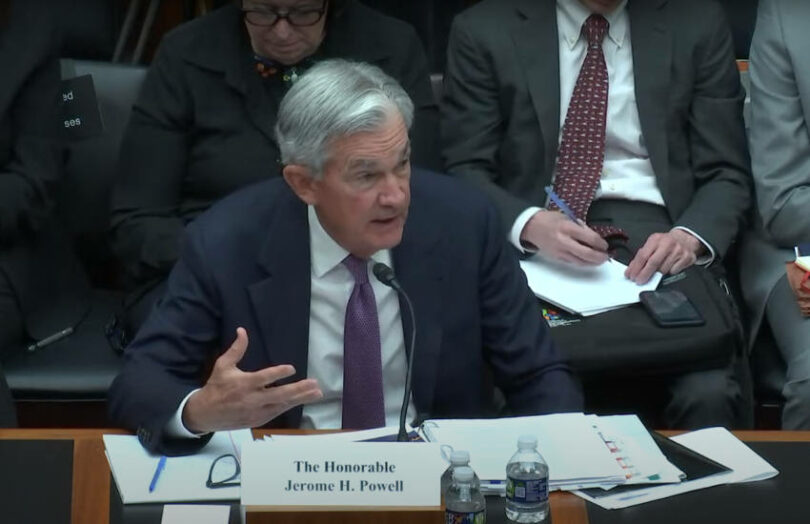On Wednesday, the US House Committee on Financial Services held a hearing with the Chair of the Federal Reserve, Jerome Powell. During this semi-annual monetary policy report, Mr. Powell said that a wholesale central bank digital currency (CBDC) might bypass Congress and be issued without approval. The Chair also noted that a CBDC is still years away.
Asked whether issuing a CBDC would have to be authorized by Congress, Mr. Powell stated, “that would absolutely be the case as it relates to a retail CBDC”. Congressman Hill, who pressed the Chair on this issue, joins the list of Republican representatives who have quizzed the Fed about whether or not the issuance of a digital dollar would require legislation. Whereas in the past, officials had noted that the Fed had no intention of issuing a CBDC without explicit support from the executive branch and Congress, this is the first time the central bank clarified that this might not be needed for a wholesale option.
The reason is that, unlike the retail option, a wholesale CBDC would not be directed to consumers. Consumers do not have accounts at the central bank, so the Fed has no direct relations with them for electronic money. Instead, Mr. Powell referred to the wholesale market and a digital dollar “that would look an awful lot like a bank reserve”. This would simply be a different kind, the Fed Chair explained.
Later in the hearing, Democrat Representative Lynch asked about progress, wondering if the Fed is already making decisions about things like the potential architecture of a retail CBDC. “We are not at the stage of making any real decisions, ” said Mr. Powell, who pointed instead to a relatively early stage of experimentation. “A CBDC will be years in evaluation,” he said.
The Chair also noted that the Fed is progressing technologically yet is being cautious about policy issues. In December last year, the Boston Federal Reserve announced the conclusion of Project Hamilton, a retail CBDC research project with the Massachusetts Institute of Technology (MIT) that looked into the technical feasibility of a digital dollar. A month earlier, Project Cedar also found that distributed ledger technology (DLT) can enable faster and atomic settlement for FX transactions and support 24/7 wholesale payments. However, according to Mr. Powell, “[w]e have not decided if this is something that the financial system or the country needs.”
Lastly, the Chair commented on the potential impact of issuing a CBDC on the value of stablecoins and other cryptocurrencies, hinting that unbacked cryptocurrencies with no intrinsic value may suffer a decline. In contrast, stablecoins that draw on the dollar’s credibility would probably hold their value.






